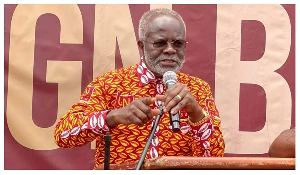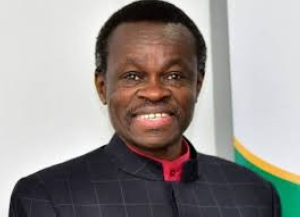Until powers that be see to it that broadcasters in Ghana don’t feed their audience with fiendishly high percentage of foreign content, some of us are not going to rest on our advocacy for media domestication.
For the past years, we have been crying on government to pass the Broadcasting Law so to regulate the content of radio and TV production. It still beats my mind why Parliament has still not passed that law.
Elsewhere in South Africa, their public broadcaster the South African Broadcasting Corporation (SABC) has planned to shore up local content on its commercial television station by up to 80 per cent after implementing a similar policy across its radio broadcasts.
Earlier this month, the SABC announced that it would implement 90 per cent local content across all its 18 radio stations. The 90 per cent radio content policy was implemented on 12th May, 2016. And now the broadcaster plans to roll out a similar policy for its television stations, said the state-owned company’s chief operations officer Hlaudi Motsoeneng on Tuesday, 31 May.
According to Fin24, on the sidelines of an SABC event that awarded production contracts to local players, Motsoeneng said that SABC3 will start broadcasting 80 per cent local content from 1 July. SABC3 is the public broadcaster’s commercial television station and it has traditionally targeted an English-speaking community. “If you look at our platform, SABC1 and 2 is more local content,” Motsoeneng said. “I said on television, SABC3 it will be 80 % local content. On other channels you have 90 per cent,” he added. The Broadcasting Law in Ghana is supposed to allow 30% foreign content and 70% local content. But how do we enforce it when it doesn’t have strong legal backing?
We have toyed with the arts industry for so long and that is affecting us greatly. We have given too much premium to foreign content and when we talk, they say it is purely business so we should allow people to do what they want. Tune in to our TV station – too many foreign telenovelas brainwashing the people of Ghana with foreign culture. Now they even dub the voices into Twi and they have huge market. This is money to the station owners but deadly to the arts industry and the Ghanaian society as a whole.
I have asked several times that if it is the telenovelas that Ghanaians are hungry for why don’t film makers in Ghana put resources together to produce some? It is about time we took our arts more seriously. We have gotten to a point where we need more investors to build an industry. At the end, we blame government not because we hate government, but because government has not been proactive in dealing with the creative arts. What happened to the Film Bill? What about the Creative Arts Bill?
I know about globalization. I know the world is now a global village and we cannot do things in isolation but that does not mean we should get shrouded in what is foreign and let our local productions die off. I am not xenophobic but with the way things are going, if we don’t take prompt actions to protect and project our own, there will be a time when we won’t have even 30% of local content on our radio and TV stations. We need to regulate this before we find ourselves in a tight corner.
The defense of “it is business” by radio and TV owners must be killed as soon as possible. Some of these things make me wonder if government really cares about what is going on. How can we leave the media landscape to be inundated with foreign stuff and we sit unconcerned? How do we grow our arts and project or culture with this behavior?
It is even sadder when on major news bulletins on our television stations they neglect the many entertainment stories in Ghana to present news on a certain old junky in America or Europe whose story has no relevance on our Ghanaian society. Our television stations are showing foreign music videos for free and charging huge sums from the Ghanaian musician. Our DJs, by the day, are developing wild interest for foreign music than local music. This is clearly ominous of we sliding of the threshold of growing Ghanaian music.
As we wait for the Broadcasting Law to be passed so to enforce this regulation, may we be filled with the spirit of domestication to promote what is Ghanaian more than what is foreign.
Entertainment of Monday, 20 June 2016
Source: flexgh.com













